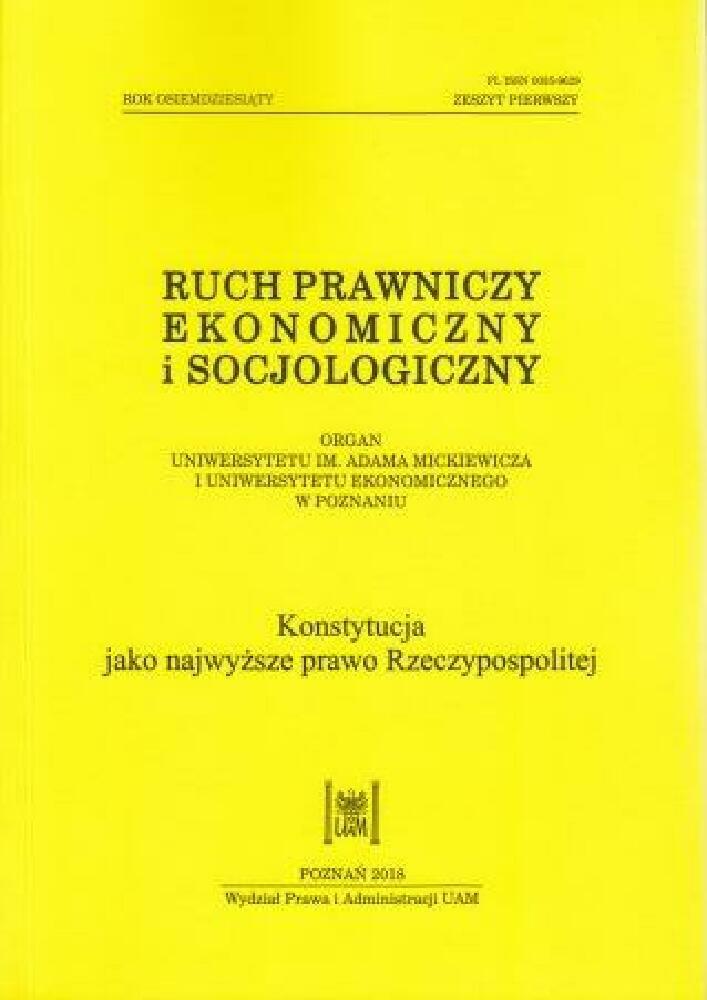Abstract
A Constitution is the source of State obligations in relation to an individual. One may distinguish negative obligations of the State that are the obligations not to breach individual rights, and positive obligations that are the obligations put on the State to act, which also includes protection of individual rights. Constitutional norms setting out the negative obligations belong to the category of rules, while constitutional norms creating the positive ones belong to the category of principles. The State is not only obliged to protect individual rights and freedoms, but is also obliged to limit these rights if necessary in a democratic state, in order to protect the State’s security or public order, or to protect the natural environment, health or public morals, or the freedoms and rights of other persons. However, such limitations shall not violate the essence of freedoms and rights. The collision of State obligations is the collision of the derivative of the collision of individual rights. Therefore adjudicating of both collisions should be perceived as the complete mechanism of the protection of individual rights.Funding
National Science Centre Research Grant DEC-2013/11/B/HS5/03711
License
Copyright (c) 2018 WPiA UAM

This work is licensed under a Creative Commons Attribution-NonCommercial-NoDerivatives 4.0 International License.




